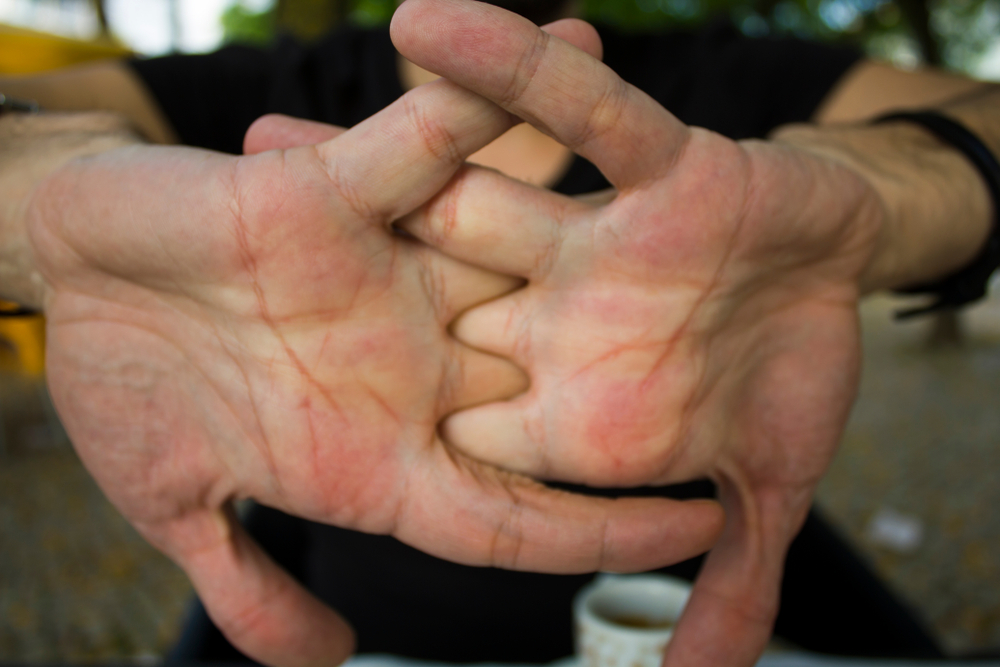Many of us have been warned about cracking our knuckles due to stories of arthritis and joint problems. Is there any truth to this age-old legend? The story of Donald Unger, who cracked his knuckles for 50 years without developing arthritis, sets the ground for a more in-depth investigation of joint cracking and its consequences on our bodies.
The knuckle-cracking experiment
Donald Unger, intrigued by his family’s worries, embarked on a one-of-a-kind experiment, cracking the knuckles of only his left hand for half a century, leaving his right knuckles alone. His perseverance yielded unexpected results, which he published in the journal Arthritis and Rheumatism: “There was no arthritis in either hand, and no apparent differences between the two hands.” Unger, who is now a doctor, calls into question the traditional wisdom about joint cracking, leading us to doubt the sincerity of the warnings.
Knuckles aren’t the only joints that generate unusual noises. Many of us have felt the gratifying snaps, clicks, and pops in different joints. A physiotherapist, Claire Speer, explains, “Lots of people have joints that click from time to time, and that’s completely normal.” These sounds frequently accompany a sense of relaxation as our joints appear to loosen and move more readily.
The science of cracking
A 2015 MRI scan study shed information on the cause of joint cracks. The popping sound is thought to be caused by tiny bubbles forming in the synovial fluid that surrounds and lubricates the joint. As the joint is extended, the pressure in the surrounding capsule of connective tissue lowers, causing bubbles to form and the cracking sound to be produced. Over the next 20 minutes, the bubbles dissolve back into the solution. This intriguing phenomenon explains the small interval of cooling required between cracks.
Fears have been raised regarding knuckle cracking, with some saying that it releases energy similar to the forces that ruin hydraulic blades and ship propellers. According to a 1990 study, knuckle crackers may have reduced grip strength and hand edema. A 2016 study, however, refuted these findings, finding no link between cracking and reduced grip. The previous study may have showed association rather than causality because cracking was also linked to smoking and drinking.
When to be concerned
While joint cracking is normally not dangerous, there are some circumstances in which you should seek medical treatment. According to Speer, “If you get pain, swelling or deformity in a clicky joint, it may be a sign of injury or arthritis in the joint.” Likewise, if a joint snaps, pops, or crunches with every movement, it is best to visit a health professional, such as a physiotherapist, to guarantee adequate joint function.
Immediate changes in joint form, particularly at the kneecap or shoulder, may suggest a partial dislocation. A physiotherapist can evaluate the condition and offer advice.
Going too far
You can have too much of a good thing, as the adage goes. The American Journal of Orthopedics published a paper by hand surgeon Peter Chan in 1999 titled “Consequences of Knuckle Cracking: A Report of Two Acute Injuries.” This study described two patients who sprained their fingers as a result of excessive knuckle cracking. It serves as a reminder to practice moderation.
Donald Unger’s case and scientific findings into joint cracking provide an intriguing perspective on a frequent practice. While the notion that knuckle cracking causes arthritis has been proven, it is still important to be conscious of our body. Understanding when to seek medical counsel and preventing excessive joint cracking guarantees that we can continue to enjoy the wonderful symphony of pops, clicks, and crunches produced by our joints.












